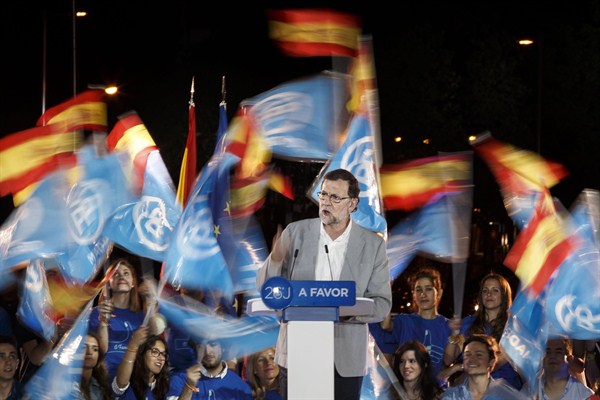Spain held its second general election in six months on Sunday, after political leaders failed to form a governing coalition in the wake of December’s inconclusive vote. However, results from Sunday’s voting didn’t move the needle much from December, and Spain, once again, faces the prospect of continued political deadlock.
Acting Prime Minister Mariano Rajoy’s Popular Party (PP) managed a better showing this time around, winning 33 percent of the vote, up from 29 percent in December. This gives the party 137 seats in the Spanish parliament, but leaves it short of the 176 seats needed for a majority, so Rajoy must now find coalition partners.
The Spanish Socialist Workers’ Party (PSOE) came in second with 22.7 percent of the vote and 85 seats, followed by the Unidos Podemos coalition—comprising Podemos and an alliance of far-left and communist parties known as Izquierda Unida—with 21 percent and 71 seats, and the center-right Ciudadanos with 13 percent and 32 seats. In the December vote, the PSOE won 22 percent of the vote, Podemos 21 percent and Ciudadanos 14 percent.

